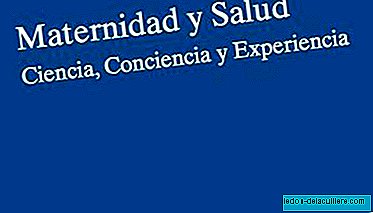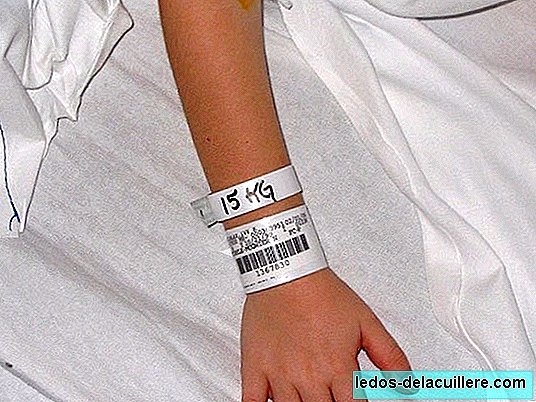A few days ago, two reports made by specialized private consultants have been presented at the Madrid Assembly, demonstrating that the majority of schools in the Community of Madrid require parents a mandatory fixed payment of allegedly irregular.
This is not new, it has been happening for years. And not only happens in Madrid, but also in several schools of the Spanish geography, where the centers make a profit by charging fees about 148 euros per month on average (in some cases they reach 198 euros) without duly informing of its non-mandatory nature, contravening the organic law of the right to education.
The two reports presented at the Assembly of Madrid indicate that:
He 77 percent of schools do not mention voluntary fees in the informative visit of the parents.
Of these, 39 percent do not reflect it in writing, and 23 percent who do mention it in the visit and it is reflected in writing, verbally tends to explain that they are mandatory, even that "the Administration forces them to put it that way."
Only 20 percent of the schools analyzed mention the non-profit of the quota.
For its part, an OCU report, prepared after visiting 160 schools in 18 cities, concludes that 91% of them inform the families of Primary students of the obligation to pay some kind of fee. The same report estimates that the annual cost of a concerted school is 3,675 euros, 69 percent more expensive than a public school.

One in four students study in concerted schools, an education that benefits more than two million children in Spain. They are private centers that have a concert with the Administration, which is responsible for subsidizing the salaries of teachers, administration and services, plus ordinary maintenance and conservation expenses, in exchange for compulsory basic education is provided free of charge.
The concerted can only charge families through two ways: the offer of services outside of compulsory education, that parents can decide whether or not to hire them, and through voluntary donations.
What can't be done is to charge for activities included in school hours, without being able to give it up, or that if so, children are discriminated against. Nor can it be that parents are not informed of the voluntary nature of the fees, presenting them as mandatory, nor that they are presented with a breakdown of the payment of said fees.
What does the law say?
According to him Article 14 of Royal Decree 2377/1985 approving the Basic Regulations Regulations on Educational Concerts.
The educational concert forces the owner of the private center to give free concert teachings in accordance with the corresponding programs and curricula and subject to the current academic ordination standards.
The same law, in its article 15 establishes:
Complementary school and service activities of the centers they will volunteerThey will not be discriminatory for the students, they will not be able to be part of the teaching schedule and will not be lucrative.

How much does a student cost to concerted education?
The Concertados platform has produced a video (which you can see below) to explain the financing system for concerted education.
It states that the annual cost of a student in a public center is, on average, 6,940 euros, fully funded by the Public Administration, according to the annual report Data and figures of the 2016-2017 School Year of the Ministry of Education, while of a student in a concerted center, the Administration finances practically half, less than 2,900 euros.
They ensure that the agreed centers receive from the administration a part of the general expenses of the center, without completing them, as well as the salary of the teaching staff through the delegated payment system (although both the teacher / student ratio and the teacher's salary are inferior to those of the public).
"For this reason the centers are forced to request voluntary contributions or to organize other activities that contribute to the total expenses of the school," they affirm in a press release.
Concerted schools, yes or no?
It is a repeated debate in Spain. It should be remembered that the concerted centers emerged in the 80s with the idea of universalize public and free education, but not having enough public schools or the money to build them, they found a solution in private schools held with public funds.
Spain is the fourth country in Europe with more centers arranged, after Belgium, United Kingdom and Malta, according to Eurostat data.
In terms of quality of education, the analysis of the PISA report 'Beyond Pisa' ensures that 15-year-old students in public schools get an average score of 489 points, which is 28 points less than private school students (517 points), which is equivalent to almost one year of schooling.
The defenders of the concert request a great pact for the education that guarantees the "plurality and freedom" Educational in Spain.
For their part, those who believe that concerted schools should disappear as an option, argue that 60 percent of the centers are Catholic schools, and do not agree with them being financed by the State.
It is not new. We talk again about concerted yes, concerted no. But beyond this, considering that it is another option for the education of our children, parents should have the freedom to choose. What cannot be is be fooled by forcing them to pay fees that should be voluntary and optional.
On this, the Governing Council of the Junta de Castilla y León signed a decree in June that turned white on black demanding that "there can be no abusive fees" and asking that "there is no lucrative spirit or mandatory" in complementary or extracurricular activities .












